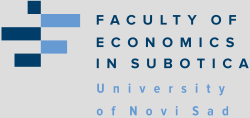Source Prestige in Covid-19 Communication
DOI:
https://doi.org/10.46541/978-86-7233-397-8_127Keywords:
Credibility, Trust, Popularity, Marketing Communication Channels, Covid19, Source Prestige, Opinion leaderAbstract
In line with present global events, governmental and public service communication faces new challenges, which include spreading misinformation, ineffectiveness of communication practices and public insecurity. Governments and health officials during pandemics have been criticised for less than optimal communication practices in the past, not in line with public preferences. In communication theory, information is viewed through double glasses, which includes the spokesperson, and the chosen communication channel. Good practices are able to harness the synergies of these two factors. In this article, the credibility and popularity of communication channels are analysed, namely focusing on public preference, source prestige and source power. At the same time public trust scores are gathered about different professions, to evaluate public preferences. The primary research data suggests that the public is generally unsure about the credibility of governmental public news sources, similarly about those channels, like television networks that are publicly owned or administered. At the same time, there is a clear preference for online channels, with social media becoming more and more influential and popular. The research findings conclude that members of the “Millennial” and “Generation Z” groups expect most credible communication to come from non-governmental and non-political sources. Regarding the profession of the influencer or spokesperson distributing information, they prefer two-way communication, and distinguish between professions, assign clear differences in credibility. One of the most interesting findings was, that a person’s profession, for example healthcare professional, has a positive effect on credibility, but this effect is only present, until the public doesn’t consider the person politically affiliated, thus referring to them as “politicians”. In these cases, regardless of their original profession, the credibility and trust score is substantially lowering.



